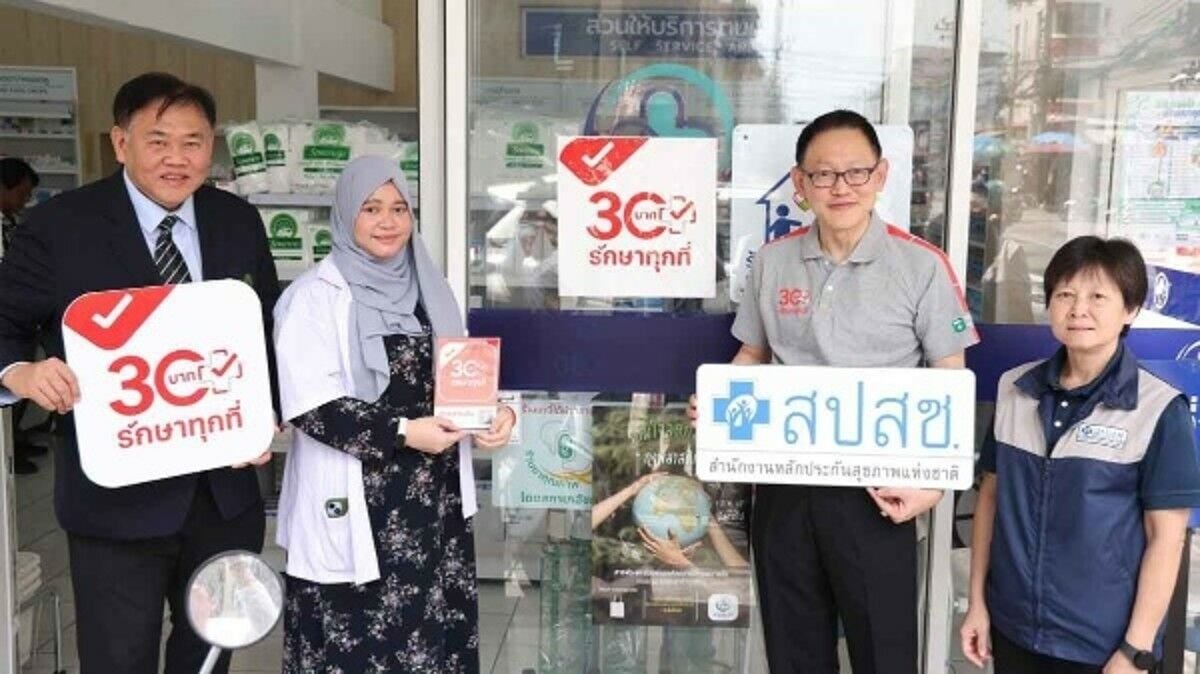Bangkok joins 30-baht healthcare scheme with 6 billion baht budget

A budget allocation of 5.9 billion baht has been approved to support the 30-baht healthcare scheme, which will now extend to Bangkok, making it the 46th province in the programme. The project will be officially launched on September 27.
The announcement was made at the National Health Security Office (NHSO) in Bangkok, where Jadej Thamatachaaree, Secretary-General of the NHSO, explained the expansion. Despite Bangkok being the last province to join, the collaboration has allowed for an expedited rollout, according to Jadej. The project aims to alleviate congestion in major hospitals by adding more primary care units closer to people’s homes, providing more accessible healthcare options.
Prime Minister Paetongtarn Shinawatra will preside over the launch event and deliver a keynote speech titled 30-baht Healthcare for All Diseases to 30-baht Healthcare Everywhere for Universal Health Coverage. Other notable attendees will include Somsak Thepsuthin, Minister of Public Health, and Chadchart Sittipunt, Governor of Bangkok.
Jadej emphasised that the primary goal is to reduce overcrowding in large hospitals by increasing the number of nearby service units. These include primary care units, pharmacies with pharmacists, and community clinics.
Additionally, there will be hundreds of special clinics offering various services such as dental care, physical therapy, Thai traditional medicine, and medical laboratory services, including home blood tests. Proactive health services will also be provided in communities and shopping malls.
The NHSO secretary-general noted that the office has streamlined the patient referral system by eliminating the need for paper referral forms, opting for electronic referrals instead. This will simplify the process for patients and healthcare providers, allowing for easier access to patient histories and facilitating compensation claims from the NHSO. A hotline, 1330, will also be available for booking appointments and handling compensation claims.
Patients can identify participating units by looking for the programme’s logo, which is now legally mandated to provide clarity and ease for both patients and service providers. Regarding funding, Jedjaj stated that the Cabinet has approved an additional 5.924 billion baht for the 2024 fiscal year to support the expanded services, not just in Bangkok but also for patients using the gold card system nationwide. The NHSO aims to allocate these funds before September 30.
Bangkok health services
Lalitaya Kongkham, Deputy Secretary-General of the NHSO, announced that the programme includes 69 public health service centres under the Bangkok Metropolitan Administration, around 280 community clinics, and 1,369 innovative service units registered as of September 12. These units include 171 out-of-hours clinics, 195 dental clinics, 910 quality pharmacies, 23 physical therapy clinics, 113 nursing clinics, 28 Thai traditional medicine clinics, and 29 medical laboratory clinics.
The programme will expand to include 10 additional services such as telemedicine applications, home blood tests for dependent patients, mobile dental units, community health check-up vehicles, school telemedicine systems, proactive health check-ups, telemedicine kiosks in public places like petrol stations and airports, and automatic dialysis machines pending approval.
In Bangkok, there are currently 35 hospitals with approximately 16,000 beds. Additional service units will be added, including seven more hospitals with a total of 500 beds, to accommodate patient referrals from other provinces. The 1330 hotline will facilitate these referrals.
Prateuang Paodis, Assistant Secretary-General of the NHSO, reported that 94% of the registered service units are now connected through the Health Link system.
Four main applications will be used for the 30-baht healthcare scheme in Bangkok: BKK Doctor (for medical records within Bangkok’s service units), Pao Tang, DMS PHR (an application of the Department of Medical Services), and Defence PHR (for hospitals under the Ministry of Defence), reported KhaoSod.
Latest Thailand News
Follow The Thaiger on Google News:


























